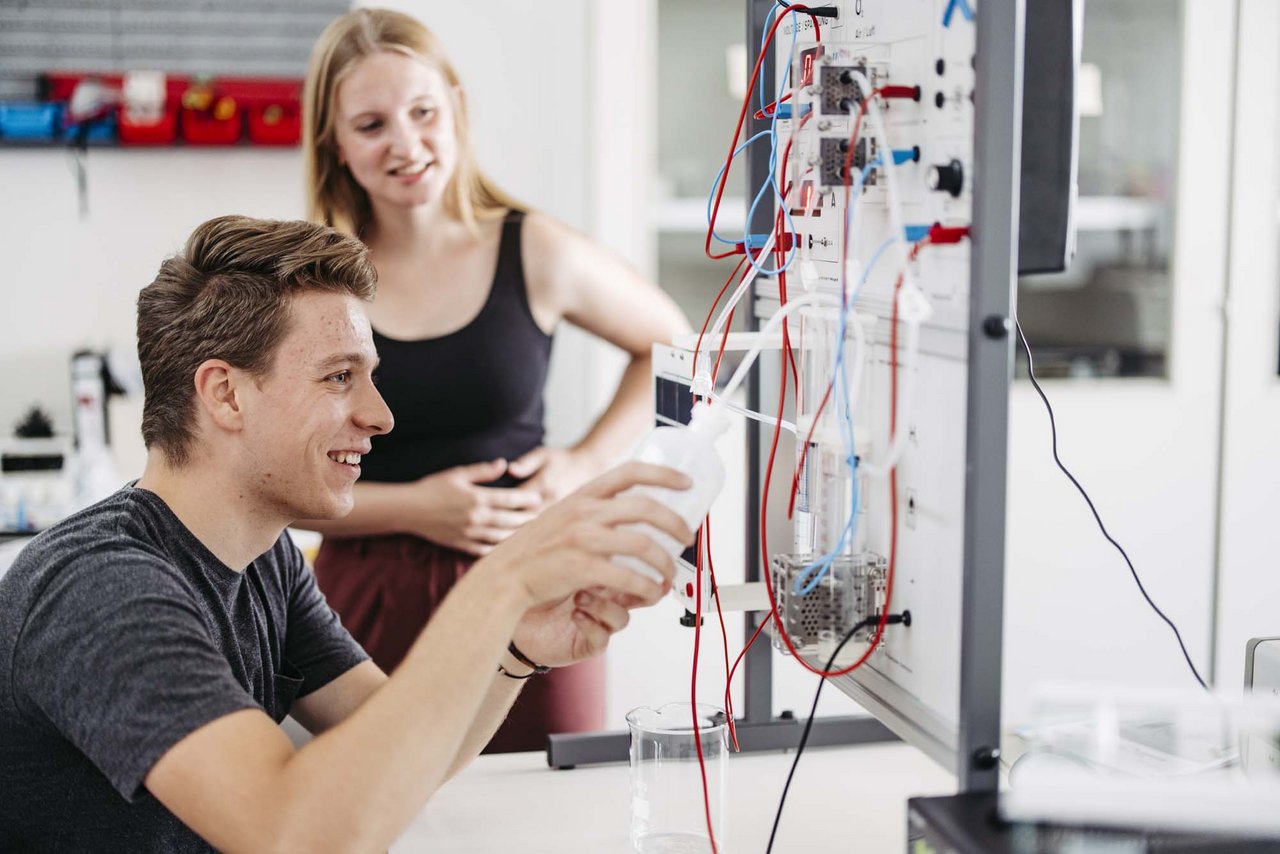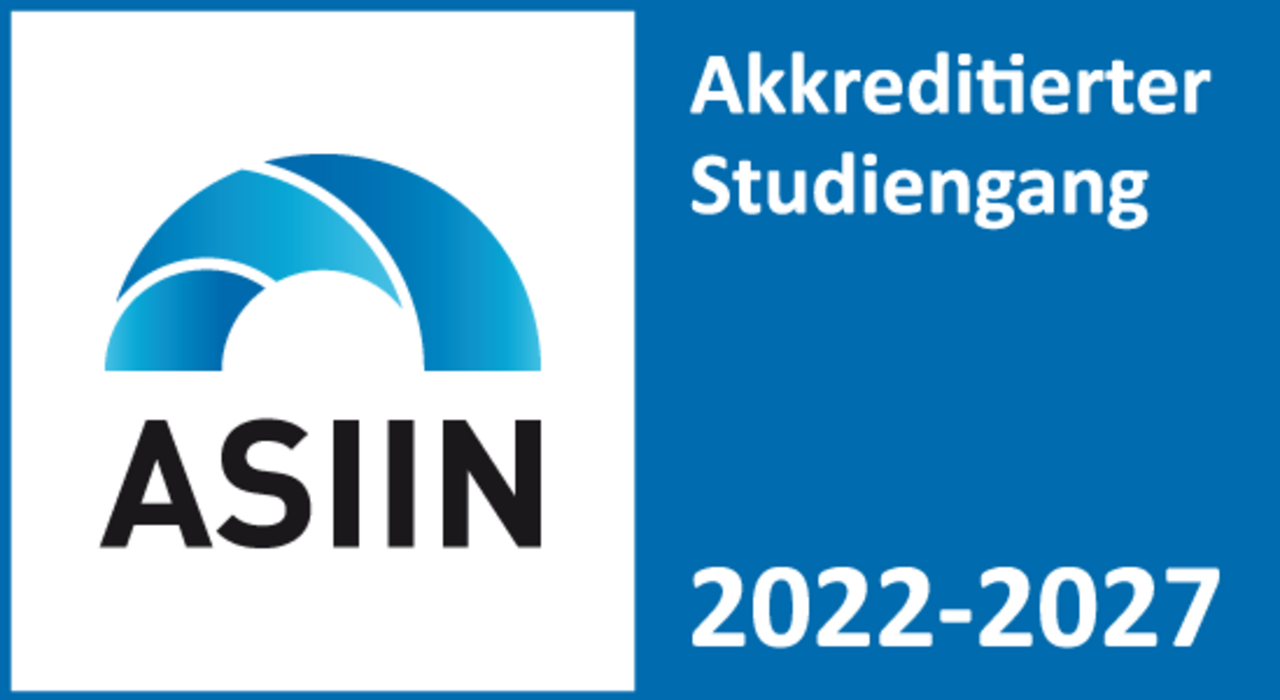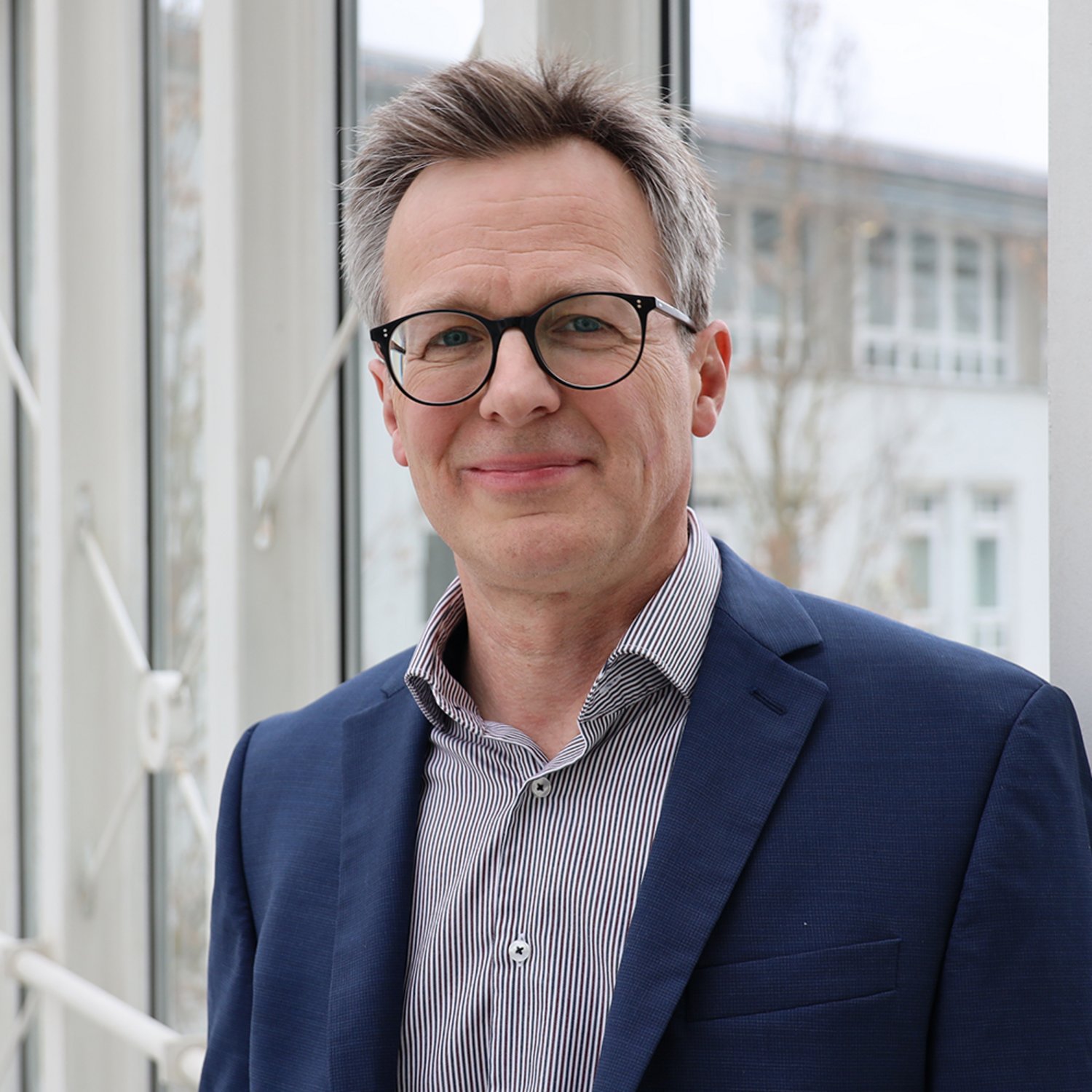

Accredited degree program
Engineering education
Bachelor
Teacher training at vocational schools or a career in engineering: The Engineering Education degree programme combines an engineering degree (either in mechanical engineering or electrical engineering and information technology) with a basic education in education and social sciences. The Bachelor's degree B.Eng. opens up all career paths for students as engineers or as teachers at vocational schools.
| Start | Winter semester |
|---|---|
| Admission Criteria | Unrestricted admission |
| Application period | 15.04.2025 - 15.07.2025 |
| Study format | Full time, with in-depth practical experience, Joint degree programme |
| Study cost | None (only semester fee) |
| Normal duration | 7 Semester |
| Language | German |
| ECTS | 210 |
| Accredited degree program | |
 | |
Prospects after graduation
Teacher at vocational schools
The demand for teachers in technical subjects at vocational schools remains very high. Vocational schools include traditional vocational schools as well as specialised academies, technical colleges and business schools as well as specialised upper secondary schools and vocational upper secondary schools. The teaching profession at vocational schools is a higher teaching profession that leads to the same civil servant career path as at grammar schools (i.e. entry as a teacher with the corresponding promotion opportunities).
Access to teaching at public schools is regulated by the Bavarian State Ministry of Education and Cultural Affairs. A Bachelor's degree in Engineering Pedagogy is not sufficient for admission to teaching at vocational schools. An additional Master's degree in "Vocational Education" is required. There is a cooperation agreement with the Department of Educational Sciences at the Technical University of Munich, so that graduates of the Bachelor's degree programme in Engineering Education can take up the corresponding Master's degree programme directly. At the end of the teacher training programme at public schools, the traineeship and the second state examination must also be successfully completed.
Engineer (plus education)
The Engineering Education degree programme ends with a Bachelor of Engineering (B.Eng.) and is therefore a fully-fledged engineering degree in the chosen specialisation of mechanical engineering or electrical engineering and information technology. This means that there is nothing to prevent you from directly entering a career as an engineer in industry and business. If you would like to specialise even further, it is also possible to complete a corresponding Master's degree.
Technical contexts are becoming increasingly complex, which is why good communication skills are also very important in the field of engineering. Engineering education graduates with their knowledge in the field of education are therefore predestined when it comes to communicating technical contexts, whether in the further education or training of employees in a company or when instructing customers.
Possible Master's degree programmes
Graduates of the Engineering Education degree programme have the opportunity to complete a Master's degree directly at TUM. Excursions are organised for this purpose, during which students can attend Master's lectures and familiarise themselves with the TUM student body. They can ask questions and talk to Landshut graduates about the opportunities and processes. To this end, the IP Alumni project was launched in cooperation with the TÜV Süd Foundation.
In addition, information events on the topic of "Transferring to TUM" are held every year, in which IP alumni and/or other contact persons from TUM explain the modalities for entering the Master's programme at TUM.
Master's in your specialisation
You also have the option of doing a Master's in Mechanical or Electrical Engineering. Please contact the Student Advisory Service of the Faculties of Mechanical Engineering or Electrical Engineering and Industrial Engineering for more information.



